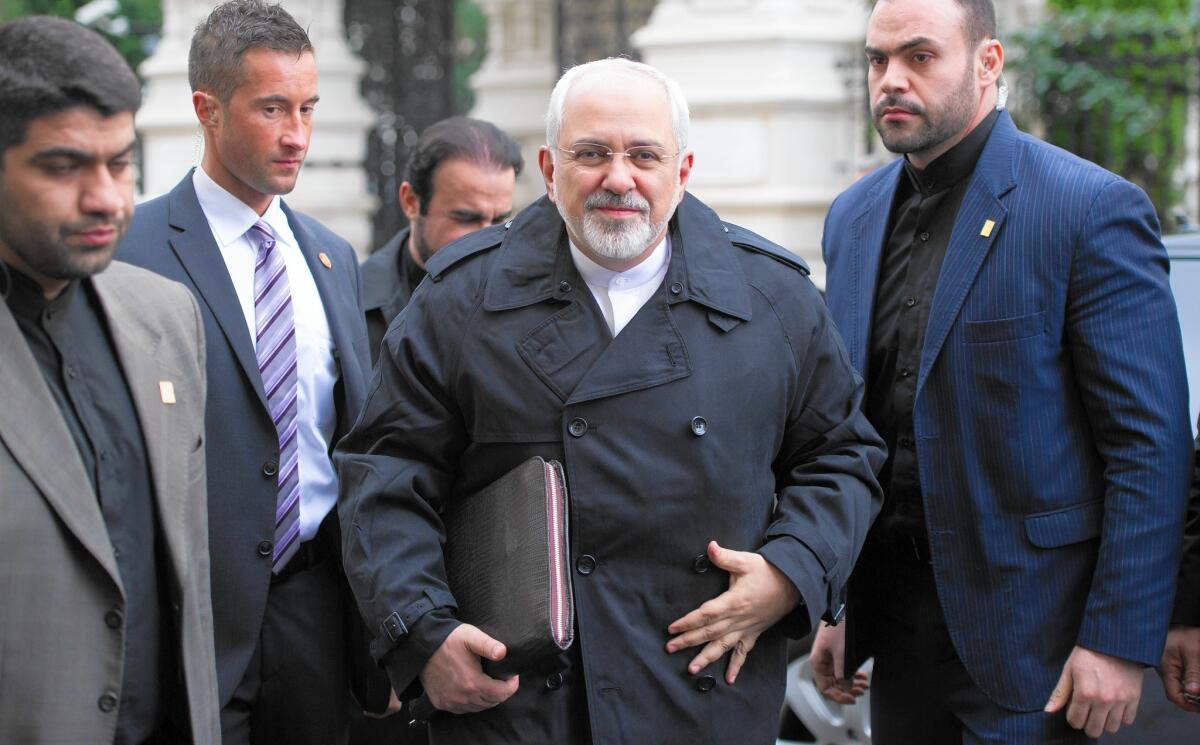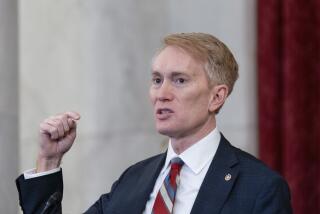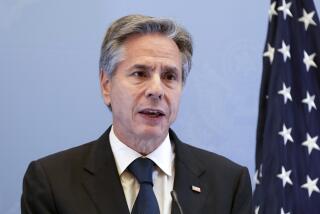Extension of Iran nuclear talks would be a hard sell in Congress

In its efforts to strike a nuclear deal with Iran, the Obama administration has faced a two-part challenge: forging an agreement in international negotiations and then selling it at home.
Now, with negotiators in Vienna five days from their deadline, it appears the second part of the task will be tougher than expected.
Many officials of the six world powers that have been negotiating with Iran predict they will not complete all aspects of a comprehensive agreement by the Nov. 24 deadline. British Foreign Secretary Philip Hammond on Wednesday became the first top Western official to publicly acknowledge that the group may need more time for a deal.
If they fail to meet the cutoff date, they may announce some kind of partial agreement. But they also are likely to seek time for further talks, officials say.
That would leave the White House seeking congressional support for an extension for the second time in four months. The administration wouldn’t want to disclose full details of the talks for fear it could undermine the diplomacy and provide ammunition for critics who worry that a bad deal would allow Iran to gain bomb-making know-how.
“This would be very messy politically for the administration,” said Jofi Joseph, who was a White House nuclear specialist earlier in the Obama administration.
Iran and the United States and five other world powers are seeking a deal that would ease international sanctions on Iran if it accepts restrictions designed to prevent it from gaining nuclear weapons capability. Iran denies that it is seeking a nuclear bomb.
In negotiations since February, the group has made progress in many areas. But the negotiators remain far apart on some key issues, including how quickly sanctions would be removed and how much uranium enrichment capability Iran could retain. Enrichment is the process used to refine uranium to a grade that can be used as nuclear bomb fuel.
Skeptics in Congress, who include senior members of both parties, have long been warning that if a deal wasn’t concluded this year they would seek to impose further sanctions on Iran. Other lawmakers are preparing legislation that would give Congress more leverage to block a deal it doesn’t like or to take away the money needed to implement an agreement.
Cliff Kupchan, chairman of the Eurasia Group risk consulting firm, said that if the administration seeks an extension based on vague assurances of progress, “that’s going to leave members of Congress with a stronger urge to rumble than ever before.”
Joseph, though a supporter of the diplomacy, acknowledged that critics would be strengthened if a final deal isn’t apparent.
“There is a persuasive argument that we’ve given [the Iranians] a year and if they can’t come to a strategic decision it’s hard to say when they’ll ever come to that decision,” he said. “And unless we go back to more sanctions, we’re going to give the Iranians the illusion that they can string this out forever.”
Ilan Goldenberg, who retired this month from the State Department, predicted an extension of the talks under terms set in an interim nuclear deal reached one year ago. “It’s the most likely, because it’s the easiest,” he said.
But Goldenberg, now with the Center for a New American Security think tank, said a simple extension is the outcome that leaves the diplomacy most vulnerable to critics in Washington and to hard-liners in Tehran as well.
With Democrats controlling the Senate, legislation threatening the diplomacy has been kept in check. But in January the Republicans take over, opening the way for fights over the Iran negotiations.
Still, if the administration completes a deal on good terms, it would have a strong hand with Congress, analysts say. Lawmakers of both parties may be reluctant to scuttle a diplomatic solution to a global threat and again raise the risk of war with Iran.
So far, few signs have emerged that Iran is willing to meet Western demands to disable more than two-thirds of its 19,000 centrifuges, sharply curtail its nuclear research and maintain those restrictions for more than a decade.
Iranian officials have insisted they would stick to their plans to expand Iran’s enrichment capacity tenfold in the next seven years.
A deal is possible only if Western negotiators recognize Iran’s “entitlement to full legal rights,” said Ali Shamkhani, the secretary of Iran’s Supreme National Security Council, according to the official Press TV news agency.
More to Read
Start your day right
Sign up for Essential California for news, features and recommendations from the L.A. Times and beyond in your inbox six days a week.
You may occasionally receive promotional content from the Los Angeles Times.







